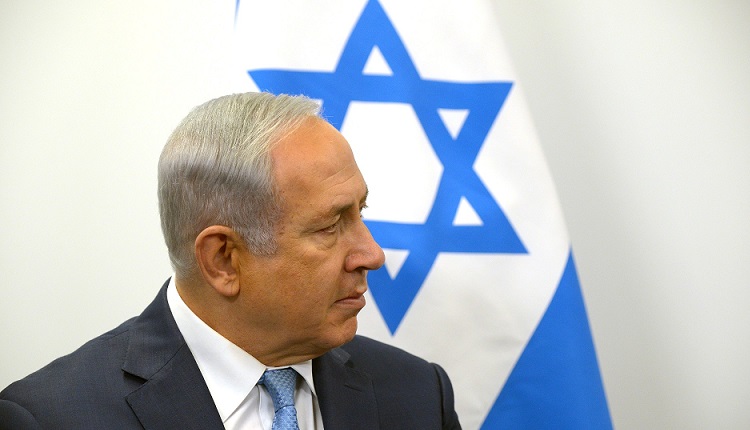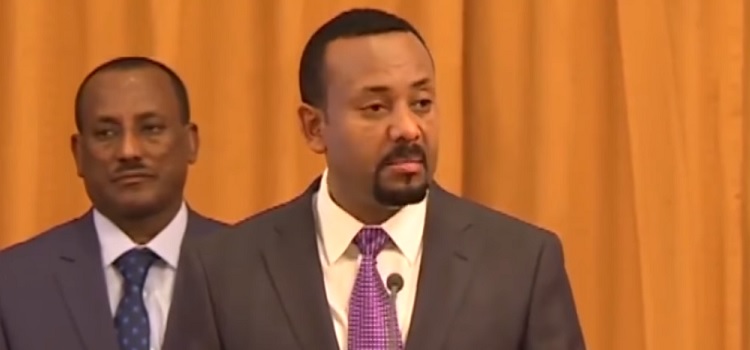The Week in World News: Ethiopia, Eritrea, elections
There’s a whole world out there that you might just miss if you don’t stop and read the papers. So with this in mind, let’s take a look back at some of the week’s biggest global stories.
Did you hear the one about Trump?
Since closing your eyes until it’s all over isn’t feasible, one must acknowledge that Trump simply exists, both as a human being and as the jaundice tinged caricature elected as the President of the United States.
Last Monday, President Trump met with Russia’s President, Vladimir Putin, in Helsinki for a two hour private meeting from which no records were kept (apart from the notes taken by his translator that the US Senate is now keen to get their hands on). Since then, President Trump has invited President Putin to Washington in Autumn, which is an incredulous notion by itself.
To hazard a guess as to what the two leaders truthfully discussed in Helsinki would be to assume that Trump’s performance behind closed doors could have been any more of a political circus than the press conference after.
At said press conference, President Trump alluded to believing the Russian KGB over the CIA in relation to alleged Russian interference in the 2016 US presidential elections. Trump stated he had no reason not to believe President Putin when the latter stated that Russia did not medal in internal US affairs, despite only days earlier US Attorney General, Rod Rosenstein having given details of the indictment of 12 Russian intelligence officers for hacking offences.
The media factually reported on what was said at the press conference (emphasis on the factual part), which inevitably resulted in President Trump whipping out the fake news card and his ensuing criticism of the media for failing to report on the apparent “success” of the meeting.
https://www.youtube.com/watch?v=49uvPQbqmOo
The next day, Trump realised the ol’ fake news card simply wouldn’t cut it and offered a consolation excuse amounting to the simple muddling of a word or two. He suggested what he meant to say was “he doesn’t see any reason why it wouldn’t be Russia” who interfered in the election, instead of saying “he doesn’t see any reason why it would be Russia.”
While continuing to back-pedal, President Trump said he has full faith in America’s “great intelligence agencies” and that he accepts their conclusion that Russian meddling took place. He insists however, that there was no interference.
Wrap your head around that one. Fakeception. A nightmare, within a nightmare, within a nigthtmare.
Israel’s Nation State Law
While we focussed on Israel and Palestine from a domestic angle last week, this week the Israeli Knesset passed a controversial and discriminatory “Nation-State” law by a vote of 62-55. The law defines Israel as the nation-state and historic homeland of the Jewish people, views settlement building (many of which are illegal under international law) as a nationalist interest and declares Hebrew as the national language.
The adoption of the law blatantly legislates for discrimination and has received widespread criticism. It will sustain an official and legal policy of ethnic purity and supremacy through relegating 1.8 million indigenous Arab citizens to second-class status and downgrading the Arabic language from an official language to a language with special status only.
The international community has consistently flattered the Israeli government with an elevated status of the “only functioning democracy” in the Middle East. It is essential to appreciate and acknowledge the progress made by Israel in comparison to some of its neighbours, but it is equally important to ground any assessment in evidence.
This “nation-state” law, along with a law passed only days earlier prohibiting critics of the IDF from speaking in Israeli schools, is a clear deviation from democracy.

Not to trivialise a sensitive issue, but for anyone familiar with Love Island, whether a die-hard fan or a convert for the mind-numbing effects it has (guilty as charged), you’ll know Georgia was a fan of saying “I’m loyal, me.”
Similarly, Netanyahu has a habit of saying, “I run a democracy, me.”
Actually, nah you don’t “babe” (Georgia’s words not mine), the Knesset just legislated apartheid and just because you say you’re something, doesn’t actually mean you are in practice.
Don’t listen to me though, make your own mind up.
For the Israeli government perspective you can listen to Ze’ev Baker, Israeli Ambassador to Ireland here.
For the Palestinian perspective, you can read this short statement by PLO Executive Committee Member, Dr. Hanan Ashrawi, here.
Eritrea and Ethiopia
An Eritrean man once described Eritrea to me as the North Korea of Africa while we sat and ate lunch together.
His analogy was based on the level of censorship that exists in Eritrea along with the mandatory military conscription imposed on every Eritrean, male and female, for indefinite periods of time.
It was easy to see why he would want to leave. Five thousand Eritreans do so each month and many of those seeking refuge state the same reason as he did for leaving. Human Rights Watch report that service lasts over a decade and “conscripts are subjected to 72-hour work weeks, severe arbitrary punishment, rape by commanders if female, and grossly inadequate food rations.”
Mandatory military conscription in Eritrea can be viewed as a direct consequence of the need to feel prepared for any flare up in tension between long term adversary, Ethiopia.
In Ethiopia on the other hand, what has been cautiously referred to as an “Ethiopian Spring” appears to be taking place since new leader, Abiy Ahmed, the first Oromo leader of the country, took office. With a history founded in authoritarian rule, the need for peaceful co-existence among such an ethnically diverse society has never been achieved. However, Abiy Ahmed seems to be throwing shapes at changing this.

In a whirlwind of events, the young leader has ended the border war with Eritrea by agreeing to give up disputed territory, lifted the country out of a state of emergency, ordered the release of thousands of prisoners and unblocked hundreds of websites and TV channels.
If this Ethiopian leader is all that he has set out to be, then his leadership may have far reaching positive effects for Eritrea too. It’s worth keeping an eye on how things develop in Ethiopia over the coming months. If you want to know more, have a listen here.
